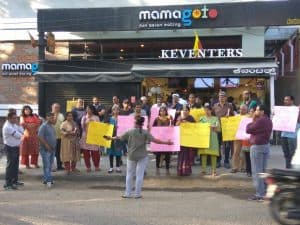In some neighburhoods, citizens are vexed by an increasing number of bars and pubs, and the dramatic change in the surroundings as a result. There have been various instances of conflict between residents and these establishments, and also a demand that BBMP should address this properly. This is doable, but only if we correctly identify the problems.
(a) The first challenge is that people who want to set up the establishments are themselves property owners in the area, which causes discord between the neighbours in terms of what they themselves want.
(b) The second is that often those letting their properties out to eateries and pubs do not themselves live there. I.e. they are seeking to put up a place whose consequences they themselves do not face.
(c) The third is that each application is handled on its own technical merit and specifications, without any consideration of the larger picture. While pubs and bars have to be somewhere, we need to ask whether dozens of them need to be located together, or whether there must be limits.
(d) There is no sensitivity to the sentiments of people, especially those who have moral objections. While we should not fall into the trap of equating morality with the preferences of individuals, there can be broad sensibilities – we could ask, for example, whether we really need to have a bar next to a place of religious worship.
(e) Amidst all this in NIMBY, the non-in-my-backyard sentiment that people sometimes have about things they want, as long as they are not intrusive upon themselves but only on others.
There is a way to tackle all this, and only a few simple rules are needed.
1. There must be a total cap on permits in a locality.
2. There must be exclusion zones around an identified set of places in the community.
3. Absentee landlordism should be discouraged.

Residents of Indiranagar protest against the rampant commercialisation of their locality.
PIC CREDIT: Facebook page, I change Indiranagar
With just these, a lot can be achieved. The question is, why isn’t this done?
The answer is simple – land use is often contentious and even more so on lifestyle-linked uses. In all these, there are opportunities for officials and politicians to intermediate themselves in disputes. To avoid the risk of processes being captured by vested interests, it is best to open up the decision-making to the community itself, and to have transparency in all the data. That, along with goals that are agreed at the community scale, is key.